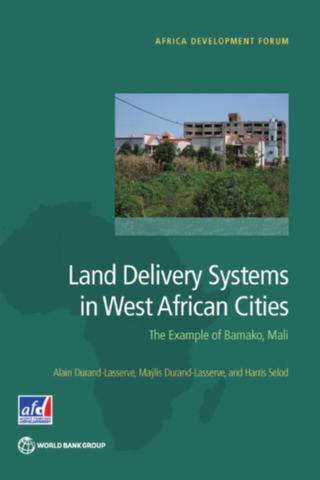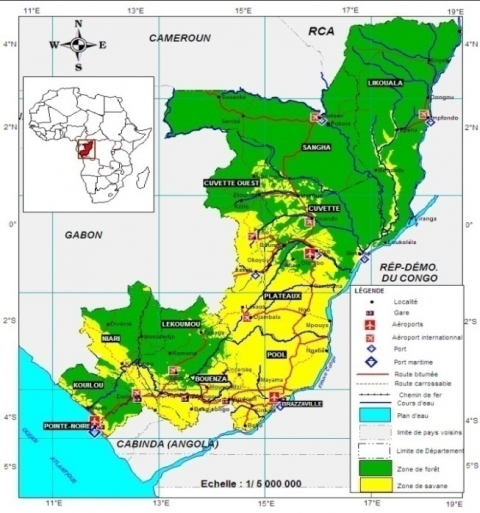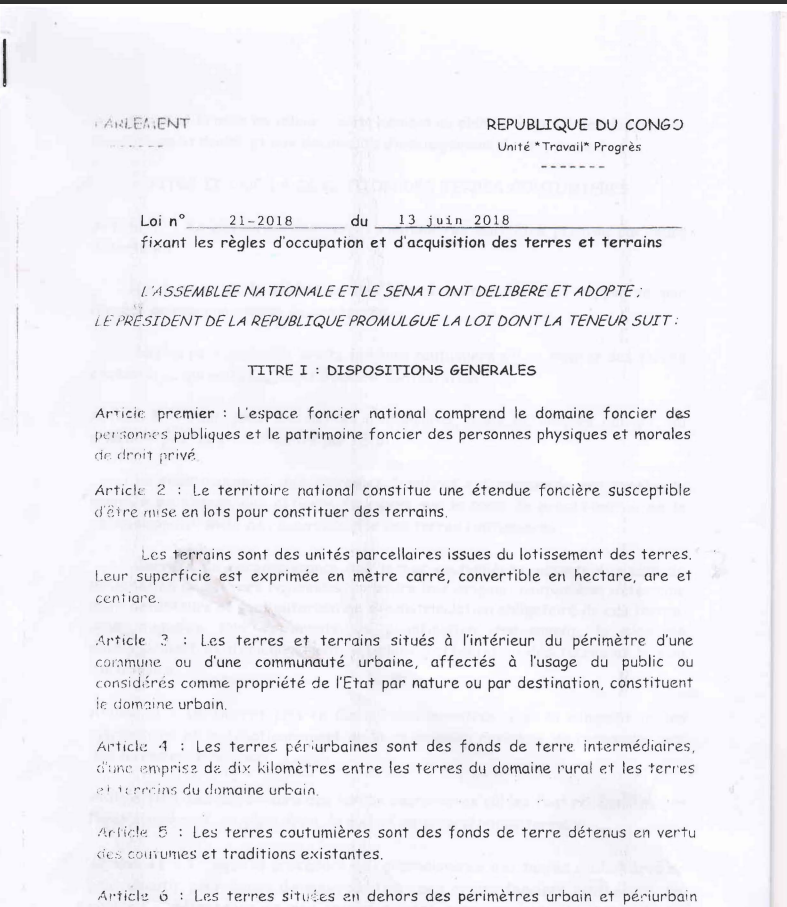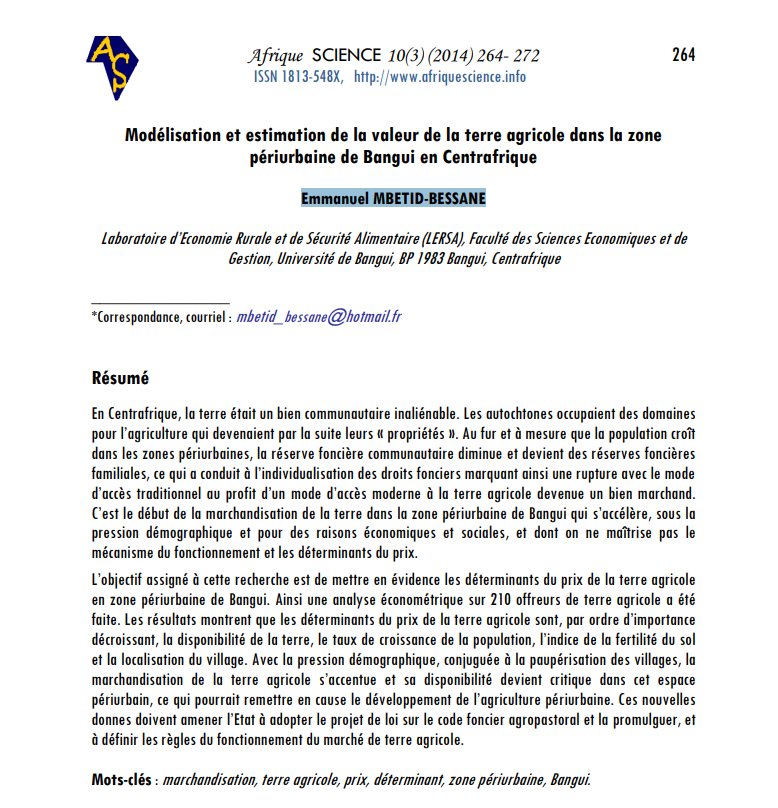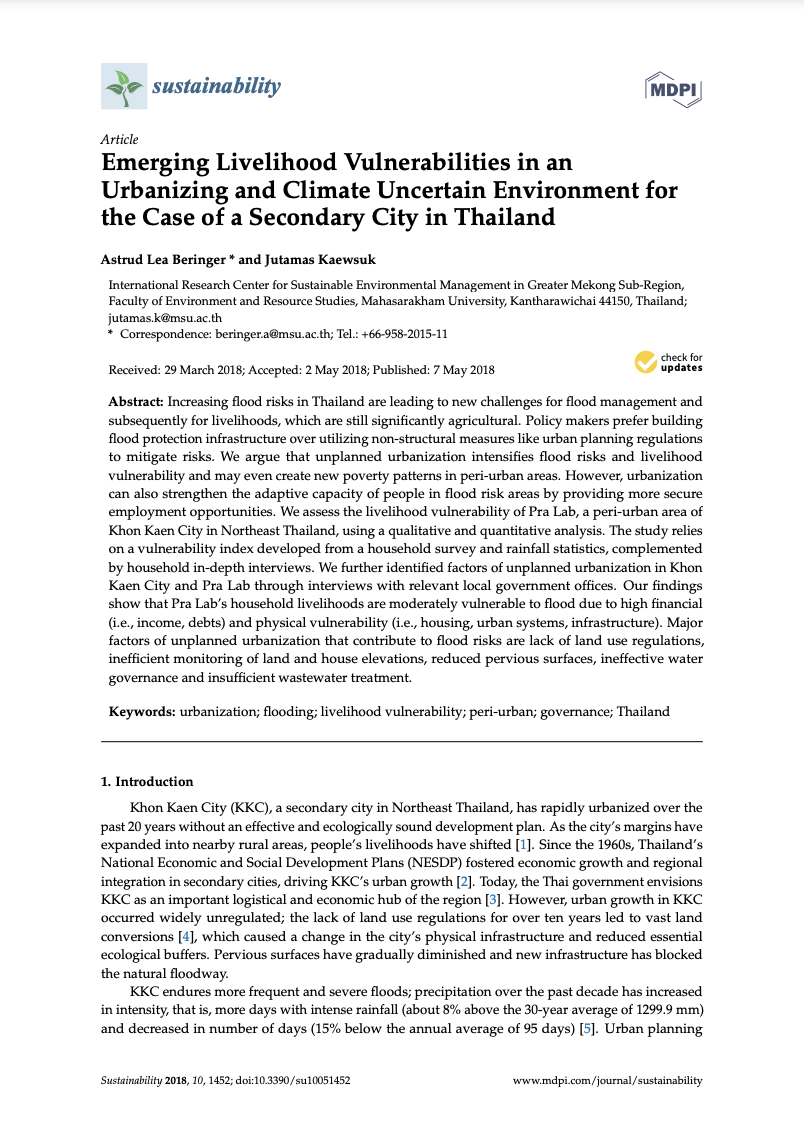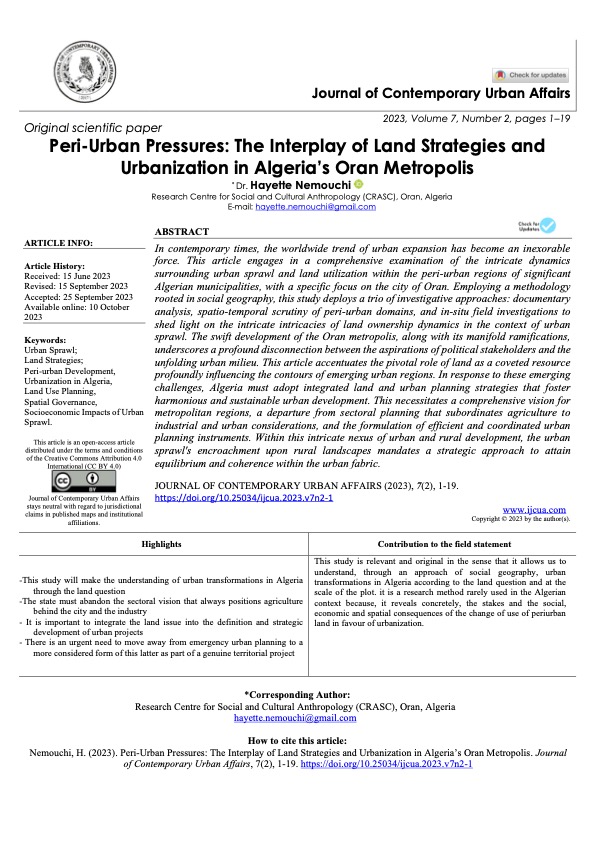Peri-urban land grabbing? dilemmas of formalising tenure and land acquisitions around the cities of Bamako and Ségou, Mali
This brief note identifies the consequences of land acquisitions in peri-urban spaces around the cities of Bamako and Ségou, Mali. This contributes to debates surrounding the rapid expansion of African cities faced with rapid rural-urban migration and new arrivals settling in precarious conditions. West Africa has a long history of urbanisation, in some cases accompanied by highly productive and intensified land use.

